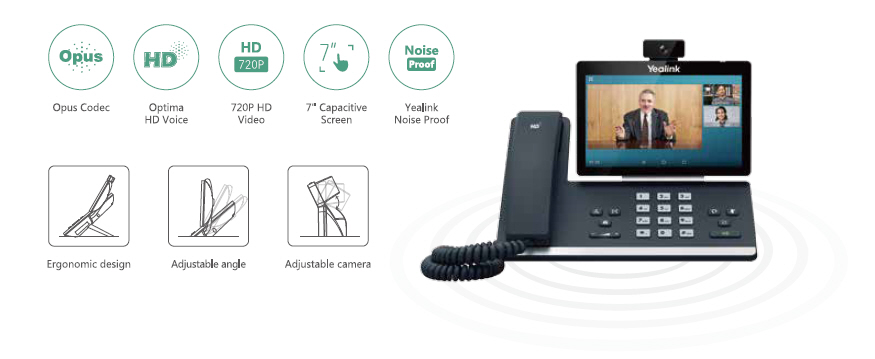Introduction
In today's digital age, communication plays a vital role in the success of any business. With advancements in technology, the choice between VoIP (Voice over Internet Protocol) and traditional landline phones has become a crucial decision for businesses of all sizes. While both options offer their own set of benefits, it is essential to evaluate which one is more cost-effective in the long run. In this article, we will delve into the advantages and disadvantages of VoIP and traditional phones, exploring their costs, features, and potential savings.
VoIP Phone Service: A Modern Solution for Efficient Communication
What is a VoIP Phone?
A VoIP phone uses internet protocol to transmit voice calls over the internet rather than traditional telephone lines. It converts analog audio signals into digital data packets, allowing for seamless communication.
Key Features of VoIP Phone Service
- Cost savings: VoIP phone service eliminates long-distance call charges typically associated with traditional phones. Scalability: Businesses can easily add or remove users as needed without the hassle of physical phone line installations. Advanced features: VoIP offers a wide range of features such as call forwarding, voicemail-to-email transcription, call recording, and virtual receptionist capabilities. Mobility: Users can make and receive calls from anywhere with an internet connection using their smartphones or laptops. Integration with other systems: VoIP phone systems can integrate with customer relationship management (CRM) software, allowing businesses to streamline their communication processes.
Is a VoIP Phone System Suitable for Small Businesses?
Yes! A VoIP phone system is an excellent choice for small businesses looking to enhance their communication capabilities while keeping costs under control. Its affordability, scalability, and advanced features make it an ideal solution for startups and growing businesses alike.
How Much Does a VoIP Phone System Cost?
The cost of a VoIP phone system varies depending on the provider and the features included. Generally, businesses can expect to pay a monthly fee per user, which typically ranges from $20 to $50. Additional costs may include hardware purchases or leasing agreements.
Traditional Phones: The Tried and Tested Communication Solution
What are Traditional Phones?
Traditional phones, also known as landline phones, utilize copper wires and dedicated telephone lines to transmit voice calls. This technology has been around for decades and has proven its reliability over time.
Key Features of Traditional Phone Systems
- Reliability: Traditional phone systems are known for their stability and consistent call quality. Emergency services support: Landline phones are directly connected to addresses, making it easier for emergency services to locate callers. Power outages: Unlike VoIP phones that rely on an internet connection, traditional phones can still function during power outages. Compatibility: Traditional phones can be used with fax machines, credit card terminals, and other devices that require a physical connection.
Are Traditional Phone Systems Suitable for Small Businesses?
While traditional phone systems have been the staple of communication for many businesses in the past, they may not be the most cost-effective solution for small businesses today. The initial setup costs, long-distance charges, and limited scalability can make them less desirable compared to VoIP phone systems.

How Much Does a Traditional Phone System Cost?
The cost of a traditional phone system includes line rental fees, long-distance charges, and equipment costs. On average, VoIP office phone businesses can expect to pay between $30 and $50 per line per month. Additional costs may arise if multiple lines or advanced features are required.
FAQs about VoIP vs Traditional Phones
Is VoIP phone service more affordable than traditional phones?- Yes, VoIP phone service eliminates long-distance charges and offers lower monthly fees compared to traditional phones.
- In most cases, businesses can port their existing phone numbers to a VoIP provider, ensuring continuity of communication.
- While VoIP offers numerous benefits, it is dependent on a stable internet connection. Poor internet connectivity can result in call quality issues.
- Traditional phones have limited integration capabilities compared to VoIP systems, making it challenging to leverage modern communication tools effectively.
- VoIP phone systems provide greater flexibility for remote work as users can make and receive calls from anywhere with an internet connection.
- Yes, businesses can utilize a hybrid approach by integrating both VoIP and traditional phones based on their specific communication needs.
Conclusion
When comparing the cost-effectiveness of VoIP and traditional phones in the long run, it becomes evident that VoIP phone systems offer significant advantages. With lower monthly fees, scalability, advanced features, and the ability to integrate with other systems, VoIP provides businesses with a cost-effective solution for efficient communication.
While traditional phones may still be suitable for certain scenarios where reliability and compatibility are paramount, small businesses looking to maximize their cost savings and leverage modern communication tools should consider adopting a VoIP phone system. By making the switch to VoIP, businesses can enhance their communication capabilities while staying ahead in today's competitive landscape.